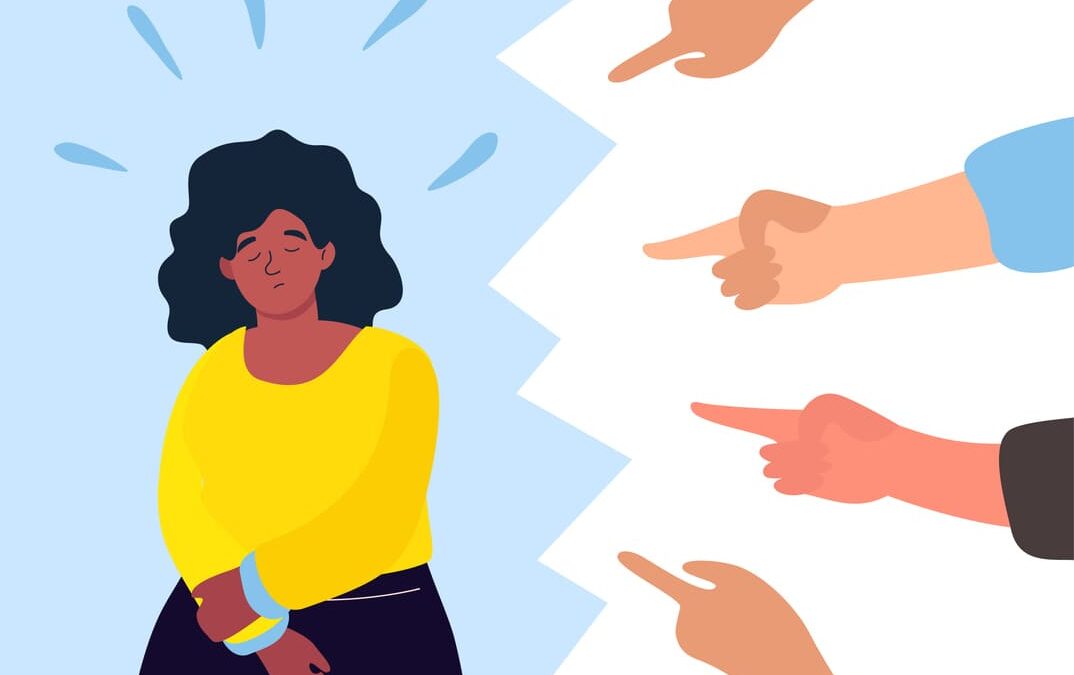On top of that, the essence of guilt must be clarified because it can be either healthy or unhealthy. This is not merely semantics. It is not splitting hairs. Understanding the difference between shame and guilt is crucial to our wellbeing.
Let’s Start with Shame
Shame can be quite a challenge to accept and address. Shame, it is thought, is hard-wired in our brains when we are as young as 15 months. Once it is internalized, a sense of shame can dramatically influence how you see and treat yourself.
Furthermore, shame is more based on belief than reason. The belief at its root is that you are inherently and uniquely flawed in your essence… even to the point of being worthless. The outcomes of this mindset are entirely negative and manifest in behaviors like:
- Avoidance
- Social withdrawal
- Intense fear of rejection
Unchecked, shame has been shown to lead to more severe problems like depression and substance abuse.
Strategies to Address Shame
It is crucial that shame is acknowledged and compassionately addressed. How? The following steps are a productive start:
- Counter shame with relentless self-compassion
- Talk to yourself as you would talk to a loved one in crisis
- Challenge the validity of your internal monologue
- Ask for evidence when your inner critic lashes out
- Take steps toward widening your social circle
- Develop relationships and a sense of belonging
Unhealthy Guilt
Experienced as early as age three, unhealthy guilt is founded on some unreasonable expectations. You set irrational standards in our childhood, hoping to please the adults in your life. In a self-fulfilling prophecy, you can never reach those standards as you yourself grow into an adult. The resulting feeling is profound and debilitating emotional discomfort.
Until you address these long-term irrational beliefs, unhealthy guilt will provide you with consistently negative outcomes. You are trapped by this self-imposed cycle. When unhealthy guilt strikes, you find yourself more likely to engage in self-punishment than in any kind of introspection. Rather than ponder what needs to be changed, you sink deeper into the pattern.
Steps to Address Unhealthy Guilt
- Once again, two major steps are the cultivation of self-compassion and the development of healthy relationships
- Identify your strengths along with your weaknesses
- Recognize that everyone has strengths and weaknesses
- Clarify whether or not your expectations of yourself are reasonable or not
Healthy Guilt
Also called “helpful guilt,” this emotion arises when you’ve done something that is objectively wrong. Developed as young as 3 years old, healthy guilt is a mostly rational response to your own behavior and actions. Everyone messes up at times and it is natural to feel like you’ve disappointed yourself. You broke your own moral code and, as a result, you’re feeling some psychological discomfort.
For the most part, this outcome is positive. Healthy guilt puts you in a position to repair any damage you’ve done and to seek forgiveness.
Steps to Address Healthy Guilt
- Own up to your actions
- Take responsibility
- Authentically apologize
- Show remorse
- Do the work to change the mindset that led to the transgression
- Heal your connection with the people involved
Talk to Someone You Can Trust
Sorting out emotions like guilt and shame is very challenging work — especially in an age teeming with false information. It only makes sense that you would choose to seek out a trusted expert to serve as your guide. Working with an experienced counselor provides you with a safe space to explore emotions, their causes, and their outcomes. Regular therapy sessions can help you identify the thoughts and patterns that are shaping you and your anxiety. Please read more about possible therapy options and contact me to set up a free 30-minute consultation soon.

